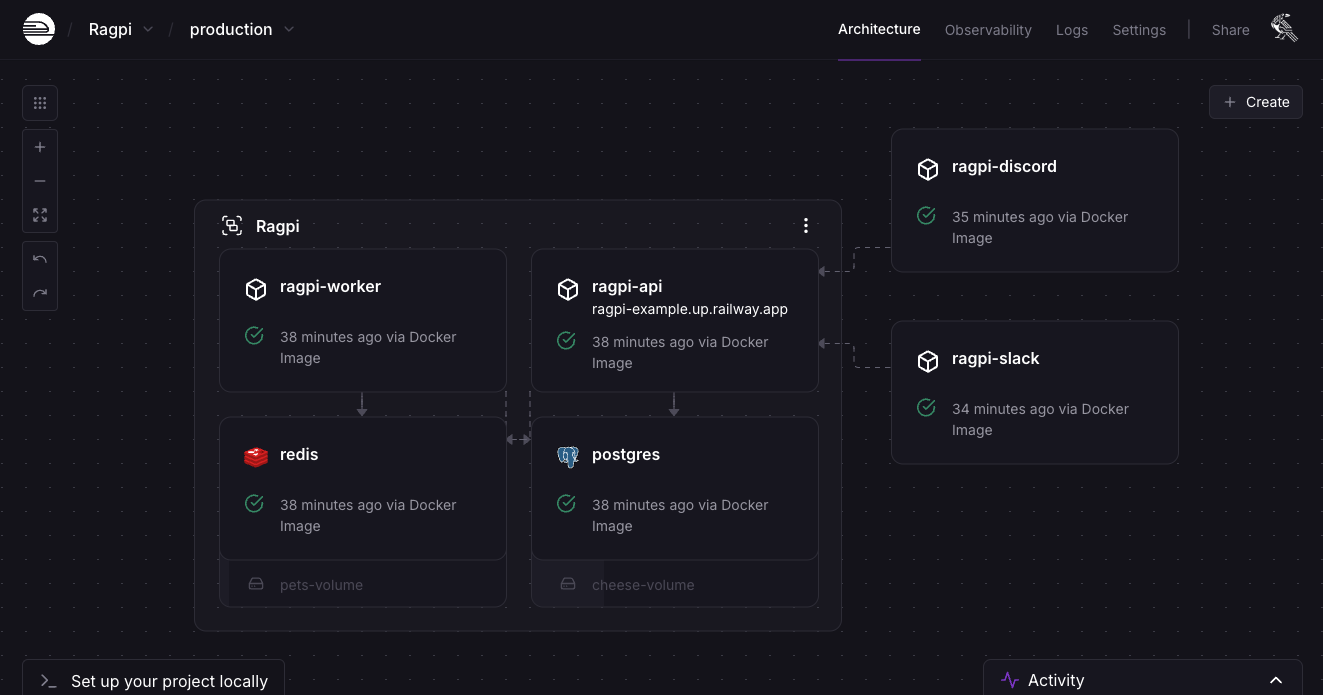Railway Deployment
Ragpi can be deployed on Railway using the provided deployment template. Railway is a platform that allows you to deploy and manage your applications with ease. You can deploy Ragpi's core services and integrations on Railway by following the instructions below.
Deploying Core Services
To deploy Ragpi on Railway, click the deploy button below and follow the instructions. You will need to sign up for a Railway account if you don't already have one.
You will need to configure the LLM providers you would like to use, i.e the CHAT_PROVIDER and EMBEDDING_PROVIDER environment variables. You will also need to configure any required variables for the provider you choose, e.g. OPENAI_API_KEY if you choose openai as your provider. You can find out more about configuring the providers in the provider documentation and the required environment variables for each provider under their respective pages.
If you need to configure additional environment variables not included in the deployment template, you can add them manually in your Railway project canvas after the initial deployment.
After deploying the core services, Railway will generate a public URL for the ragpi-api service which you can use to access the API. You can also enable API authentication by setting the RAGPI_API_KEY environment variable on the ragpi-api service and using it to authenticate requests to the API.
Deploying Integrations
Each Ragpi integration has its own Railway deployment template. Once you have deployed the core Ragpi services, you can deploy integrations like Slack and Discord by adding a new service to your project canvas. You can do this on your project's Architecture page by clicking the Create button, selecting the Template option, and searching for the integration you want to deploy, e.g., Ragpi Discord Integration or Ragpi Slack Integration.
After selecting the integration template, you will need to configure the required environment variables for the integration. The RAGPI_BASE_URL environment variable should already be set to the URL of the ragpi-api service you deployed earlier. If you enabled API authentication, the RAGPI_API_KEY environment variable should also be set to the API key you configured for the ragpi-api service. You can find the required environment variables for each integration in the integration's documentation.
Example Project Canvas
